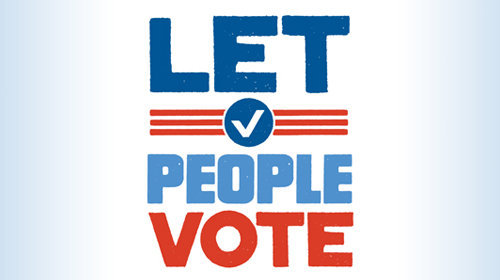
On Monday the Supreme Court will hear oral arguments in Arizona, et al. v. ITCA, Inc., et al., the second of two important voting rights cases that the Court will hear in less than a month involving Congress' authority to enact laws to increase access to voting. This case, in which the ACLU and other public interest organizations are representing a number of plaintiffs, addresses different legal questions than Shelby County v. Holder, which was heard by the Supreme Court a few weeks ago.
Shelby County v. Holder, challenges the constitutionality of Section 5 of the Voting Rights Act which requires certain jurisdictions with a history of discrimination to obtain federal approval before enacting any changes to their voting laws. Thanks to Section 5 and other provisions of the VRA, voter registration and turnout have steadily increased. A key component to Section 5's success has been the targeted voter registration outreach to communities of color.
The National Voter Registration Act of 1993 also aims to make voting more convenient. The NVRA created a uniform voter registration form, and requires a majority of states to offer voter registration forms at motor vehicle agencies and offices that provide public assistance. Congress concluded that the NVRA was necessary in order to ensure equal access to voter registration opportunities for all people, and to address the complicated and confusing maze of local registration laws that deterred many people from registering in the first place.
The State of Arizona, unfortunately is attempting to circumvent the NVRA by passing a law, Proposition 200, that requires registration applications be accompanied by additional documentary evidence establishing a person's U.S. citizenship. Proposition 200 conflicts with the plain language of the NVRA, which already requires people to swear under penalty of perjury that they are American citizens. Arizona, et al. v. ITCA, Inc., et al., will decide if Arizona had the right to impose additional proof of citizenship, beyond what is required by the NVRA.
Arizona's enforcement of this law resulted in an estimated 31,500 registration applications being rejected between the time of the implementation of Proposition 200 in 2005 and the trial in 2008. Those rejected applicants include people like Herta Weber, a German-born woman who was naturalized in the United States and served in the U.S. military for 24 years. When she moved to Arizona in 2007, two years after Arizona's proof of citizenship law was enacted, the State rejected her voter registration application for failure to provide documentary proof of citizenship.
Jesus Gonzalez, an Arizona resident, submitted his voter registration application on the same day he was sworn in as a U.S. citizen, but the State rejected his application for failure to document his U.S. citizenship. And because of a little-discussed quirk in the law in which driver's licenses issued before 1996 are not accepted as sufficient proof, he was not even allowed to rely on that document when registering to vote. Perhaps one of the saddest examples is Shirley Preiss, a woman born in Kentucky in 1910 who regularly voted since 1932, but whose registration application Arizona rejected because she was born at home and never had a birth certificate. And, even though Kentucky did not even issue birth certificates back then, Arizona refused to accept her sworn oath confirming her citizenship. Ms. Preiss died in 2011.
While the specific legal claims in Shelby County v. Holder and Arizona, et al. v. ITCA, Inc., et al., are different, the underlying issue in both cases is the same – whether the safeguards Congress has enacted to ensure that all eligible citizens are able to access the ballot box will be preserved. The voters and communities the ACLU represents are depending on the Supreme Court to uphold laws like Section 5 and the NVRA that protect the very foundation of our democracy – the fundamental right to vote.
Learn more about voter rights and other civil liberty issues: Sign up for breaking news alerts, , and .


